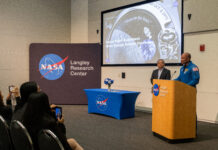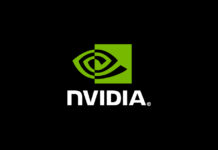Japan Enhances AI Sovereignty with ABCI 3.0 Supercomputer
In a significant leap forward for Japan’s artificial intelligence (AI) research and development capabilities, the National Institute of Advanced Industrial Science and Technology (AIST) will integrate thousands of NVIDIA H200 Tensor Core GPUs into its AI Bridging Cloud Infrastructure 3.0 (ABCI 3.0) supercomputer. The system, built by Hewlett Packard Enterprise (HPE), will feature NVIDIA Quantum-2 InfiniBand networking, providing superior performance and scalability.
ABCI 3.0: A New Era for Japanese AI Research and Development
ABCI 3.0 represents the latest iteration of Japan’s large-scale Open AI Computing Infrastructure, designed to advance AI research and development (R&D). This collaboration underscores Japan’s commitment to enhancing its AI capabilities and fortifying its technological independence.
"In August 2018, we launched ABCI, the world’s first large-scale open AI computing infrastructure," said Yoshio Tanaka, Executive Officer at AIST. "Building on our experience over the past several years managing ABCI, we’re now upgrading to ABCI 3.0. In collaboration with NVIDIA and HPE, we aim to develop ABCI 3.0 into a computing infrastructure that will advance further research and development capabilities for generative AI in Japan."
Generative AI refers to a type of AI that can generate new content, such as text, images, or music, based on the data it has been trained on. This technology is poised to revolutionize various industries by automating content creation and enhancing productivity.
"As generative AI prepares to catalyze global change, it’s crucial to rapidly cultivate research and development capabilities within Japan," added Hirotaka Ogawa, Producer and Head of ABCI Operations at AIST Solutions Co. "I’m confident that this major upgrade of ABCI in our collaboration with NVIDIA and HPE will enhance ABCI’s leadership in domestic industry and academia, propelling Japan towards global competitiveness in AI development and serving as the bedrock for future innovation."
The Infrastructure Behind ABCI 3.0
The ABCI 3.0 supercomputer will be housed in Kashiwa, at a facility managed by AIST. The project is supported by Japan’s Ministry of Economy, Trade and Industry (METI) through the Economic Security Fund. This initiative is part of a broader $1 billion effort by METI to strengthen Japan’s computing resources and invest in cloud AI computing.
NVIDIA is closely collaborating with METI on research and education, following a visit last year by Jensen Huang, the company’s founder and CEO. During his visit, Huang met with political and business leaders, including Japanese Prime Minister Fumio Kishida, to discuss the future of AI in Japan.
Huang pledged to collaborate on research, particularly in generative AI, robotics, and quantum computing. He also committed to investing in AI startups and providing product support, training, and education on AI.
"AI factories" — next-generation data centers designed to handle the most computationally intensive AI tasks — are crucial for turning vast amounts of data into intelligence, Huang emphasized. "The AI factory will become the bedrock of modern economies across the world," he said during a meeting with the Japanese press in December.
Unmatched Computing Performance and Efficiency
ABCI 3.0 is expected to come online by the end of this year, offering state-of-the-art AI research and development resources. The facility will provide:
- 6 AI exaflops of computing capacity, a measure of AI-specific performance without sparsity.
- 410 double-precision petaflops, a measure of general computing capacity.
- Each node will be connected via the Quantum-2 InfiniBand platform, offering 200GB/s of bisectional bandwidth.
To put it in simpler terms, an exaflop is a measure of a computer’s speed and can perform one quintillion (a billion billion) calculations per second. A petaflop, on the other hand, is a measure of a computer’s processing speed and can perform one quadrillion (a thousand trillion) calculations per second.
The Backbone of ABCI 3.0: NVIDIA Technology
NVIDIA technology forms the backbone of this initiative, with hundreds of nodes each equipped with 8 NVLink-connected H200 GPUs. This setup provides unprecedented computational performance and efficiency.
The NVIDIA H200 GPU is the first to offer over 140 gigabytes (GB) of HBM3e memory at 4.8 terabytes per second (TB/s). This larger and faster memory accelerates generative AI and large language models (LLMs), while also advancing scientific computing for high-performance computing (HPC) workloads. The result is better energy efficiency and a lower total cost of ownership.
The integration of advanced NVIDIA Quantum-2 InfiniBand with In-Network computing — where networking devices perform computations on data, offloading the work from the CPU — ensures efficient, high-speed, low-latency communication. This is crucial for handling intensive AI workloads and vast datasets.
A Platform for Collaborative AI R&D
ABCI 3.0 boasts world-class computing and data processing power, serving as a platform to accelerate joint AI R&D with industries, academia, and governments. METI’s substantial investment is a testament to Japan’s strategic vision to enhance AI development capabilities and accelerate the use of generative AI.
By subsidizing AI supercomputer development, Japan aims to reduce the time and costs of developing next-generation AI technologies. This initiative positions Japan as a leader in the global AI landscape and ensures that the country remains at the forefront of technological innovation.
Good to Know: The Broader Implications
It’s worth noting that the advancements in AI infrastructure like ABCI 3.0 have broader implications beyond just technological prowess. They can significantly impact various sectors such as healthcare, finance, and education:
- Healthcare: AI can accelerate drug discovery, personalize treatment plans, and improve diagnostic accuracy.
- Finance: AI can enhance fraud detection, automate trading, and provide personalized financial advice.
- Education: AI can offer personalized learning experiences, automate administrative tasks, and provide advanced research tools.
Conclusion
Japan’s ABCI 3.0 supercomputer marks a significant milestone in the country’s AI journey. By integrating advanced NVIDIA GPUs and leveraging state-of-the-art networking technology, Japan is poised to make substantial advancements in AI research and development. This initiative not only strengthens Japan’s technological independence but also positions the country as a global leader in AI innovation. As generative AI continues to evolve, the capabilities provided by ABCI 3.0 will undoubtedly play a crucial role in shaping the future of AI across various industries.
For those interested in the technical aspects and future updates, staying tuned to AIST, NVIDIA, and METI’s announcements will provide valuable insights into how this groundbreaking infrastructure will evolve and impact the global AI landscape.
For more Information, Refer to this article.

































